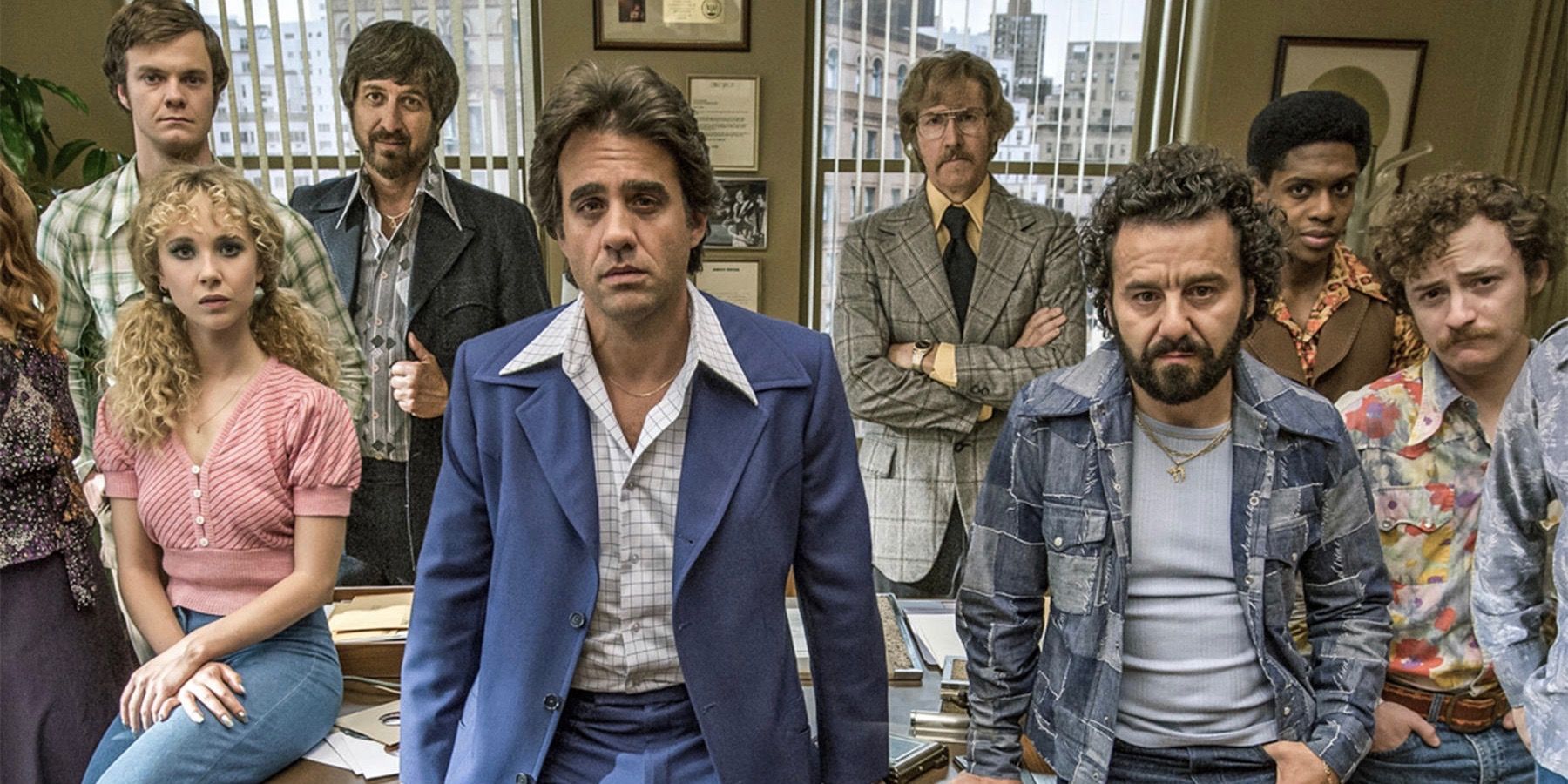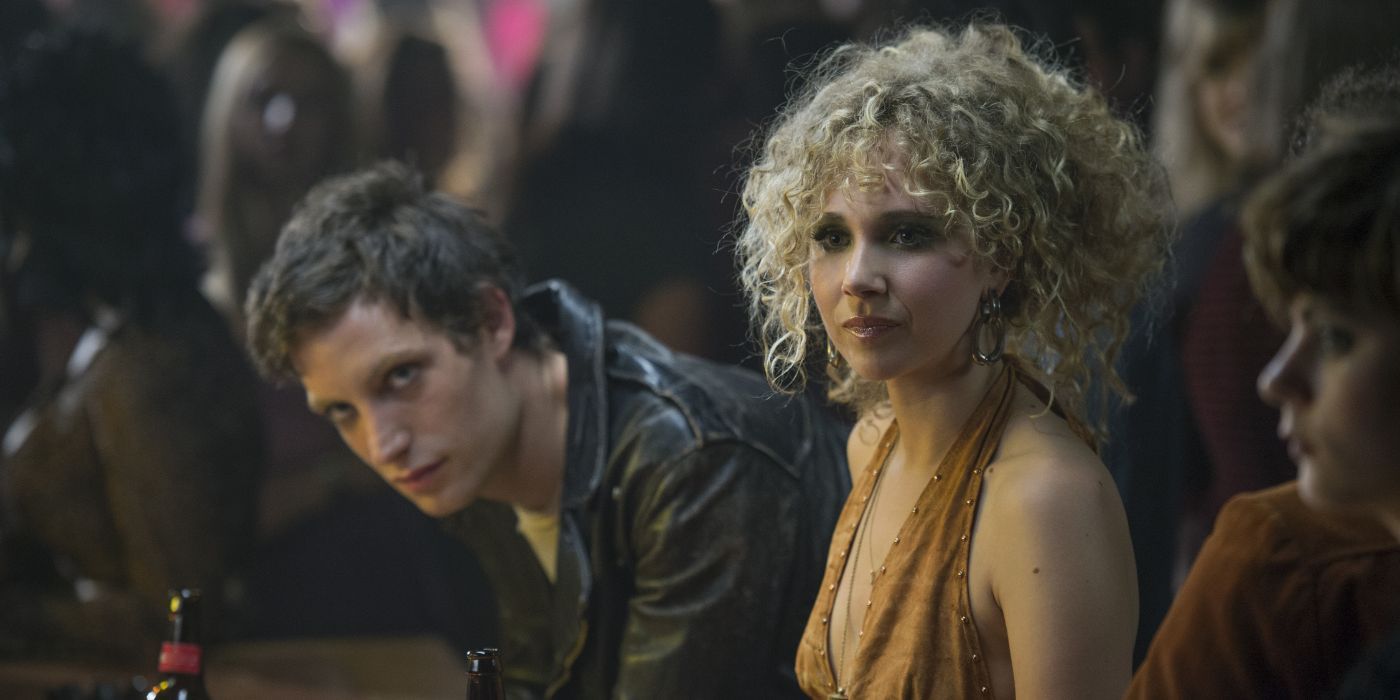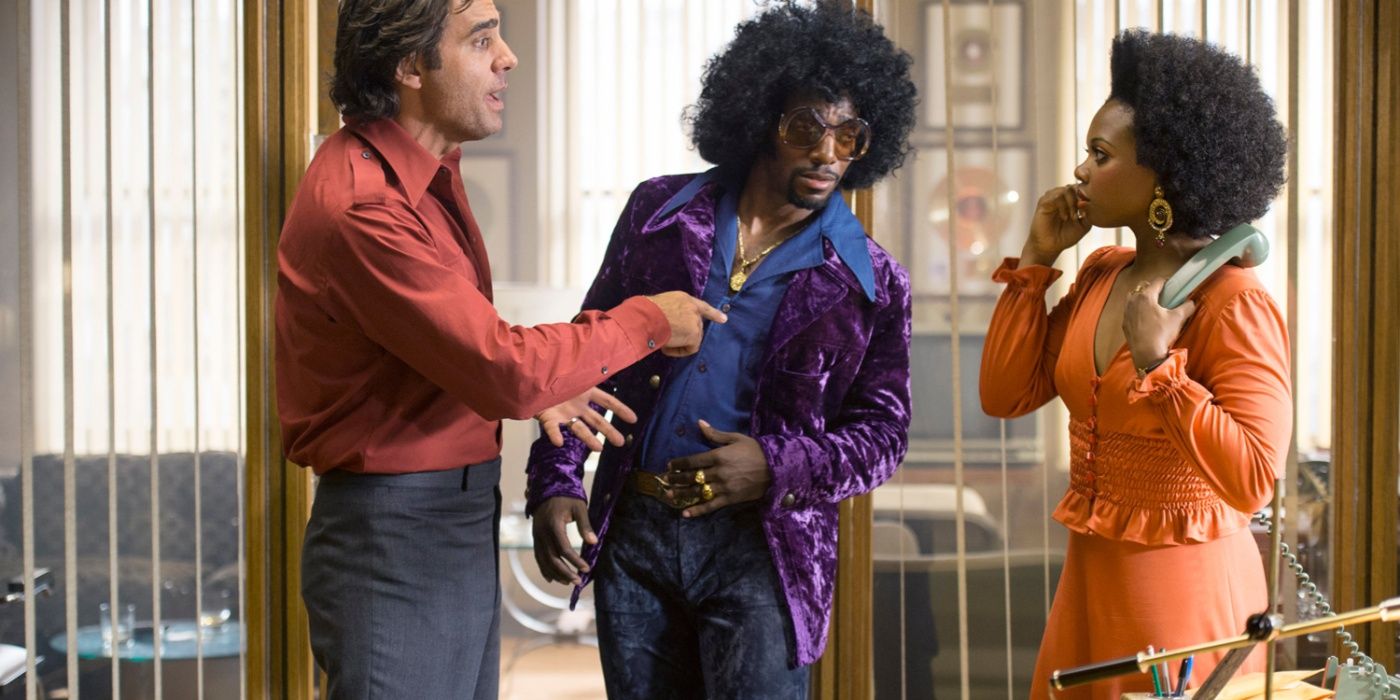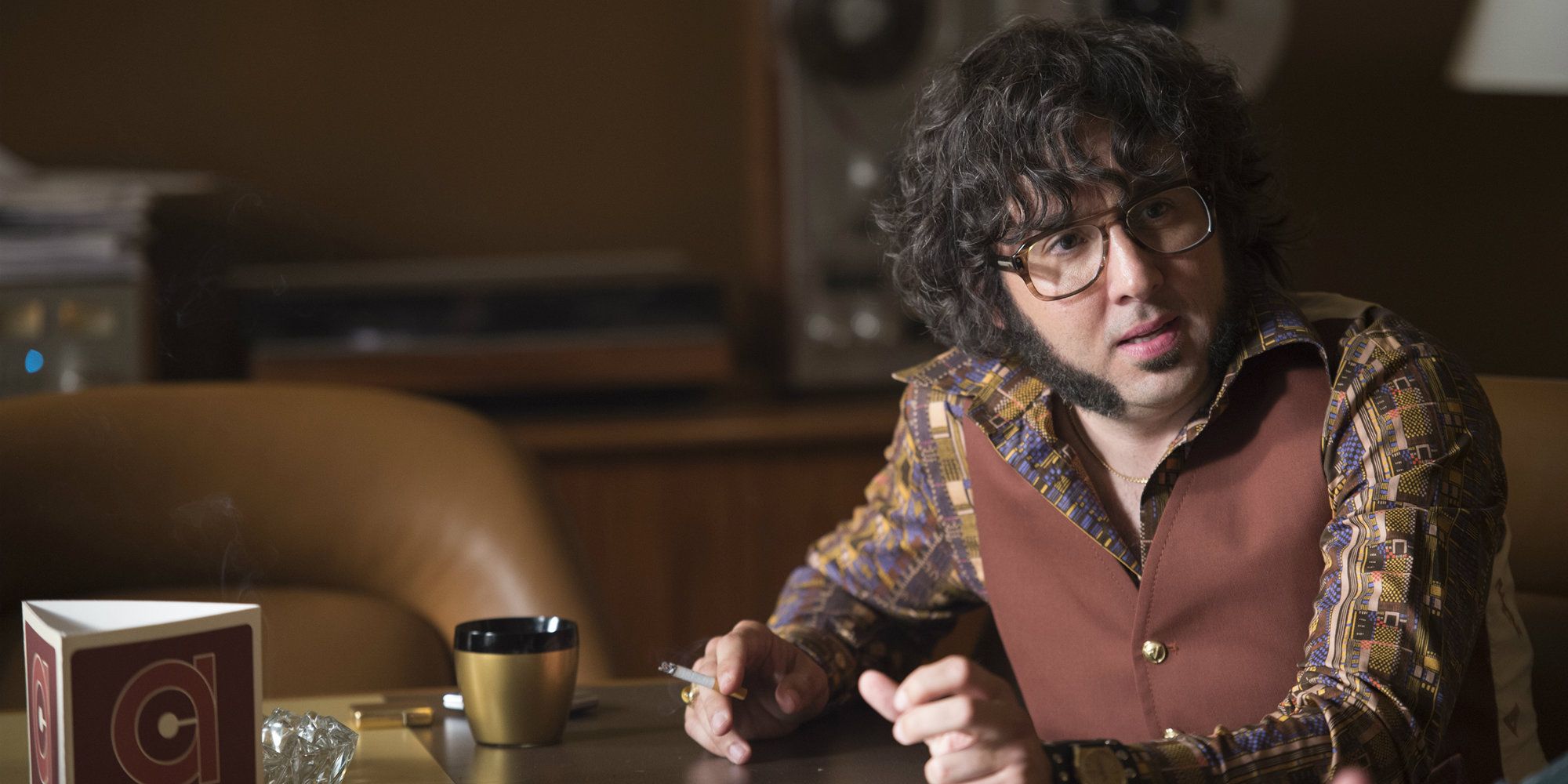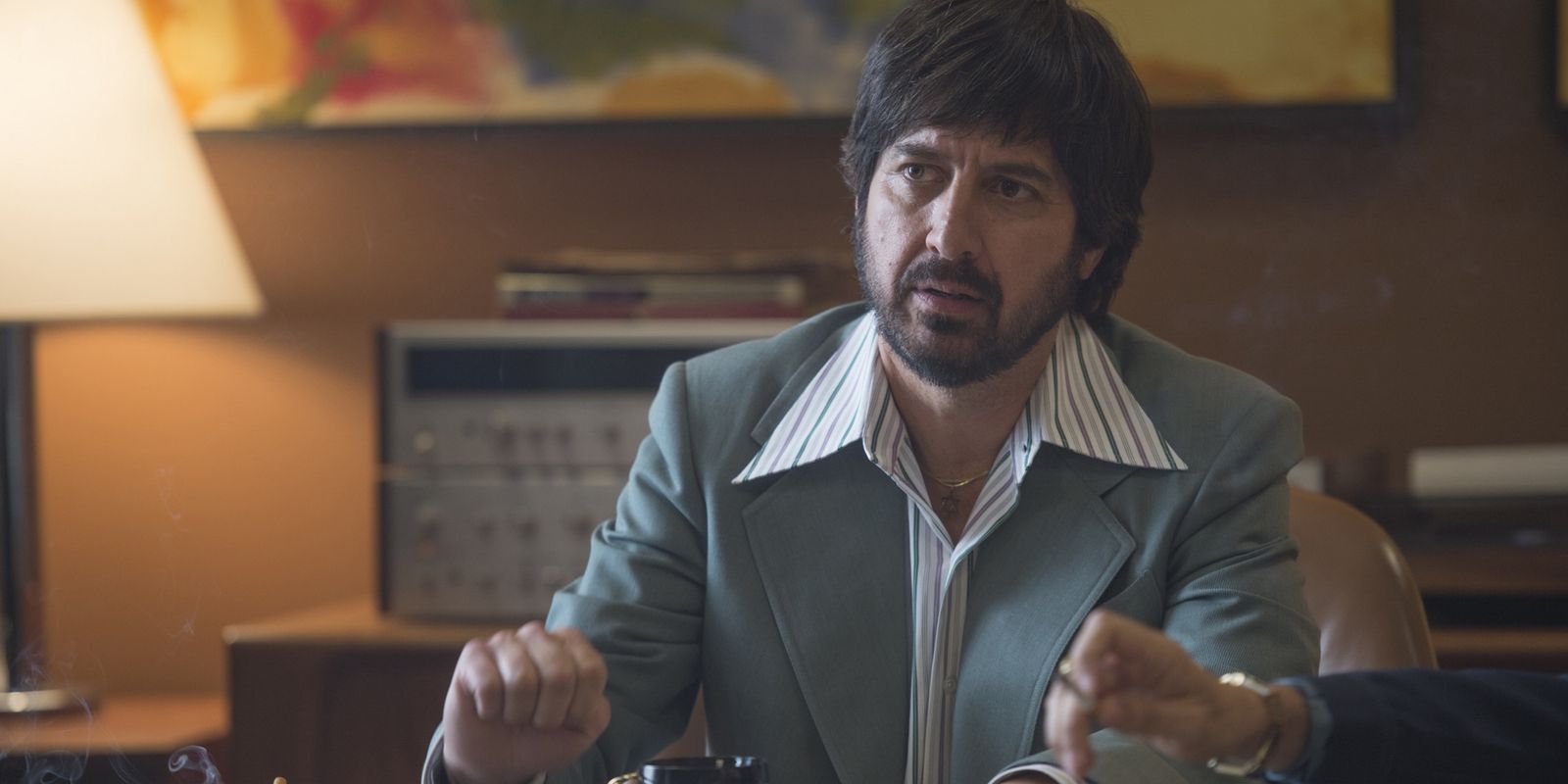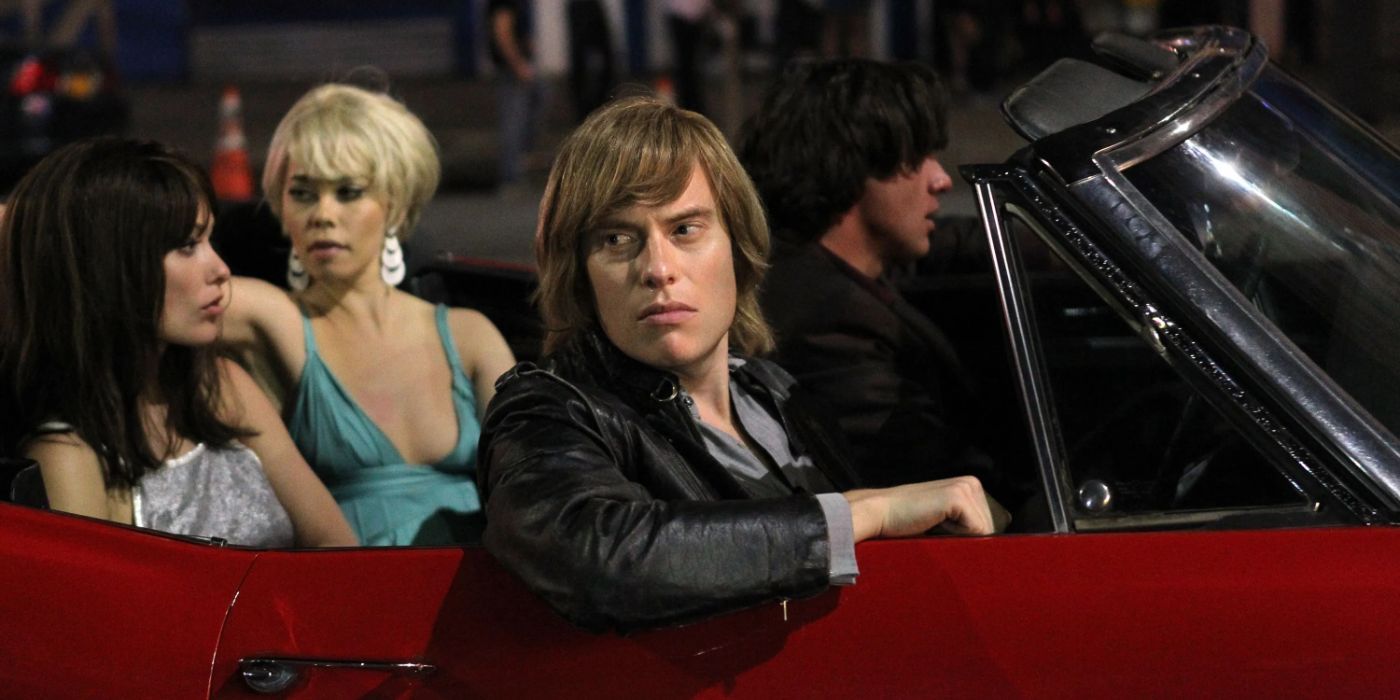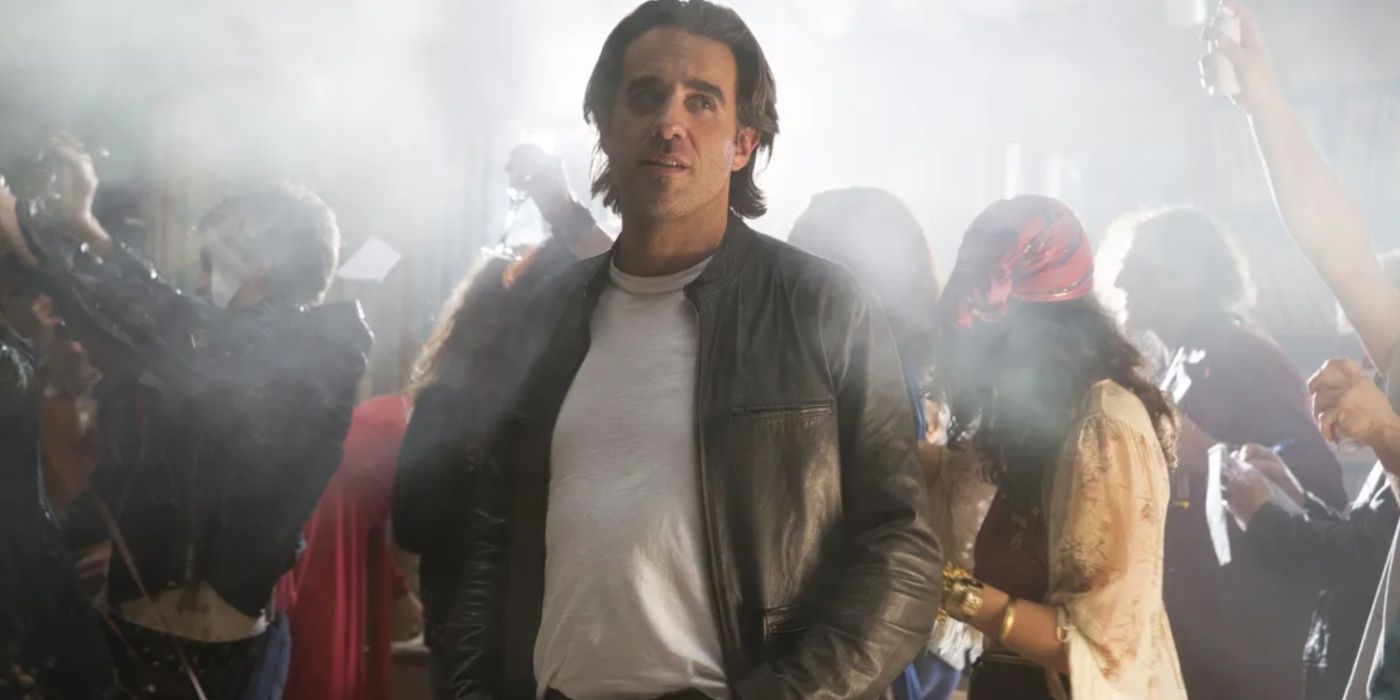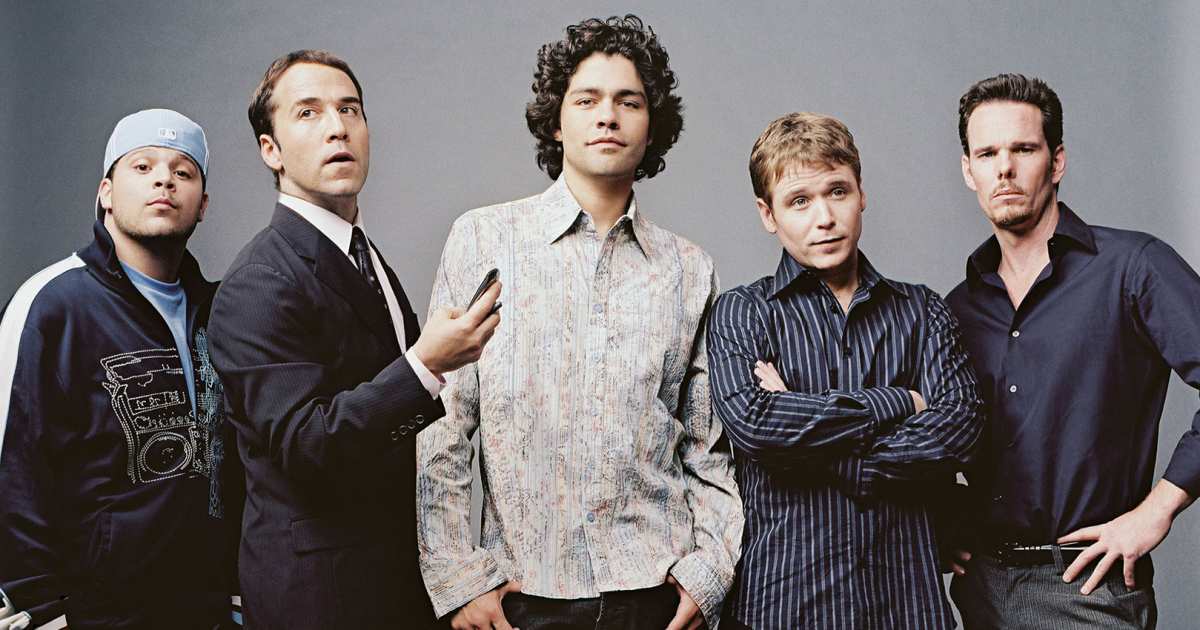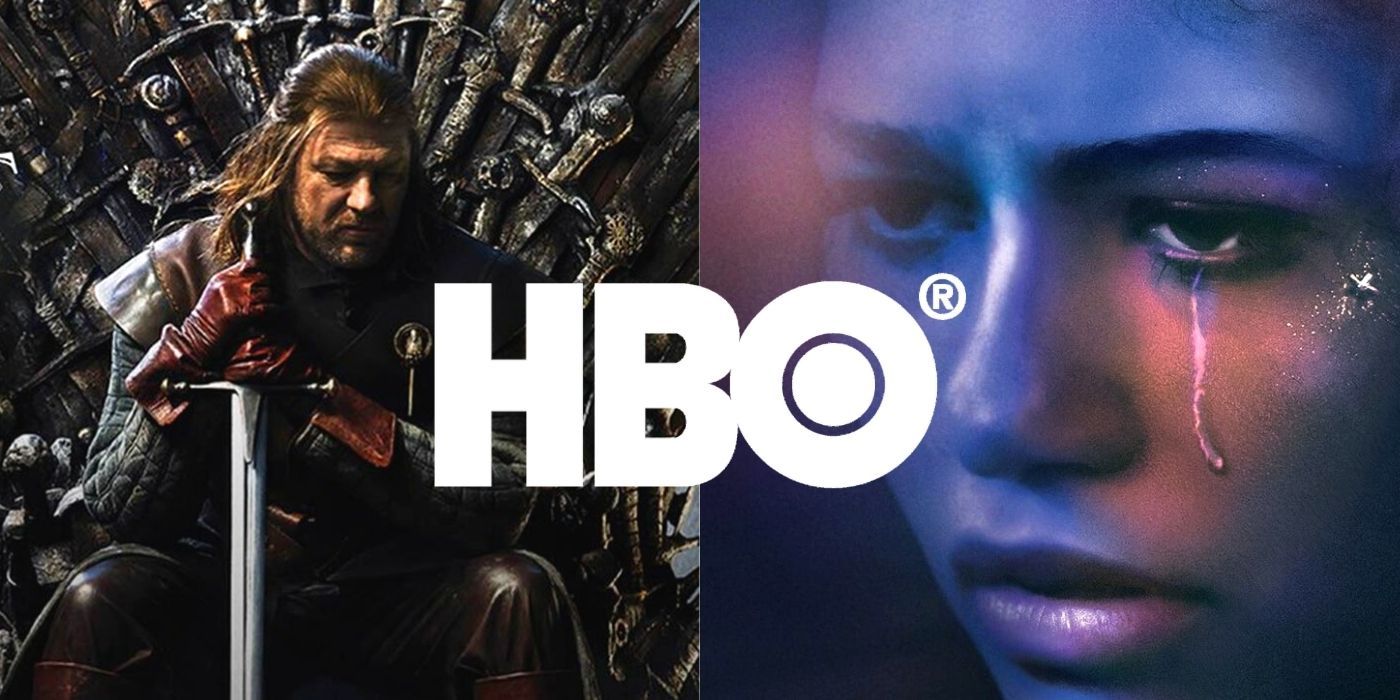The Ultimate Guide to HBO's Vinyl Soundtrack: Unearthing the Untold Stories Behind Every Captivating Song
Discover the enthralling world of HBO's Vinyl soundtrack as each episode unveils a captivating mix of songs Immerse yourself in the vibrant tunes of the Pilot, Yesterday Once More, Whispered Secrets, The Racket, He In Racist Fire, Cyclone, The King and I, EAB, Rock and Roll Queen, and Alibi Unleash the power of music in this epic journey!
Summary
HBO's Vinyl soundtrack features iconic songs from the 1950s to the 1970s and covers by contemporary artists, capturing the music scene of 1970s New York City.
The diverse soundtrack seamlessly blends hip-hop, punk, rock 'n' roll, and disco, featuring a mix of well-known hits and hidden gems from the era.
Crafted by Martin Scorsese and Mick Jagger, the soundtrack is a result of their expertise and personal connections to the music, as they carefully selected tracks from the vast collections of Atlantic Records & Warner Bros. Records.
The soundtrack of HBO's Vinyl includes popular songs from the 1950s to the 1970s, along with covers by contemporary artists. Set in 1970s New York City, the series explores the music scene during a time when rock, sex, and drugs were closely intertwined. The protagonist, Richie Finestra, faces challenges as the rising popularity of hip-hop, punk, and disco threatens his record company. With Mick Jagger as co-creator, Vinyl boasts a diverse and memorable soundtrack that combines genres like hip-hop, punk, rock 'n' roll, and disco. The series features a mix of well-known hits and lesser-known tracks, providing a comprehensive look into the music of the era.
Episode 1 - Pilot
"Sugar Daddy" by Sturgill Simpson serves as the official theme song for the television series Vinyl. It was exclusively created for the show.
In one scene, Richie enters a venue and witnesses a band performing "Personality Crisis" by David Johansen. This song acts as the opening track from the self-titled debut album by the New York Dolls. The performers onstage are accurately portraying the band.
"Mama Weer All Crazee Now" by Slade is heard as Jamie strolls through the bustling streets of New York City and enters the iconic American Century Records building. This energetic and raucous rock anthem topped the charts, becoming Slade's third No. 1 single in the UK.
During Jamie's encounter with Clark, the infectious tune "Cum On Feel the Noize" by Slade can be heard in the background. Although this track also reached No. 1 in the UK, it is the cover version by Quiet Riot that gained greater recognition.
"Black Coffee" by Humble Pie is featured as the background music while Richie is being chauffeured around New York City. Despite being a cover of an Ike & Tina Turner song, this rendition by Humble Pie is more widely recognized.
The scene where the record company prepares to harass Little Jimmy Little is accompanied by the playing of "Mama He Treats Your Daughter Mean" by Ruth Brown. Released in 1952, Ruth Brown was inspired to record this song after hearing a street performer sing a song with a similar theme.
"I Just Want to Make Love to You" by Foghat is played as Richie drives around New York in his car. This rendition of the song was released in 1972 and is a cover of the original version by Muddy Waters.
During Jamie's conversation with Richie about the band Nasty Bits, "Suspicious Minds" by Dee Dee Warwick is playing. Although the song was initially recorded in 1968, it wasn't successful until Elvis Presley's version, which led to numerous covers including Dee Dee Warwick's rendition in 1970.
Frankenstein (The Edgar Winter Group) is appropriately played when Frankenstein appears on the Buck Rogers' show. The song, titled "Frankenstein," is a rock instrumental that gets its name from the way it was put together, rather than any themes within the song.
In a flashback scene where Richie sells his interest in Maury's label and betrays his friend Little Jimmy Little, "Mr. Pitiful" by Otis Redding is played. The song, released in 1965, was a response to a comment made by a disc jockey who referred to Redding as "Mr. Pitiful" due to his singing style.
"I Just Want to Celebrate" by Rare Earth is played in Richie's car as he pulls over. This 1971 single is widely recognized and has been featured in numerous films.
During a dream sequence, "I Like It Like That" is sung by four artists. This pop-rock song by Chris Kenner was released in 1961 and reached No. 2 on the Billboard Hot 100 chart.
"Rotten Apple" is the song performed by Nasty Bits, the fictional band in the universe of the show, when Jamie witnesses a brawl at their concert. James Jagger, who portrays Kip Stevens, the lead singer of Nasty Bits in Vinyl, is also the son of Mick Jagger.
"Pillow Talk" sets the mood as Richie enters the club to converse with Buck Rogers. This provocative 1973 ballad explores sensual themes.
Richie often enjoys listening to "The World Is Yours" by Ty Taylor at home. It is a song that was created specifically for Vinyl and Ty Taylor also voices the character of Lester Grimes on the show.
In the studio, Lester performs the song "Cha Cha Twist," which is another original track made exclusively for Vinyl and sung by Ty Taylor.
The song "Give It Up or Turnit a Loose" by James Brown is featured in the scene where Richie is faced with a gun. Released in 1969, this single became a chart-topping hit in the R&B genre and also reached the top 20 on the pop singles chart in the US.
In another scene, "Ring Ring" by ABBA is played as Jamie enters the conference room with a lunch box. This track serves as the title song of ABBA's debut album, which was released in 1973.
"Hand Clapping Song" by The Meters comes on the radio, causing Richie to pull over. Released in 1970, this funky track incorporates hand clapping into its rhythm.
When Richie meets with Zak, Scoot, and Led Zeppelin's manager, the song "All the Way From Memphis" by Mott the Hoople starts playing. Released in 1973, this song narrates the tale of a guitarist who mistakenly has his guitar shipped to Kentucky instead of Memphis.
Stranded in the Jungle (David Johansen) is heard as Richie enters a concert where the song is being performed. It is a 1982 rendition of the 1956 song by the doo-wop group The Jayhawks.
At the beginning of Richie's birthday party, Want Ads (Soda Machine) is played. This is a cover of the 1971 R&B hit originally performed by the all-female group, Honey Cone.
"I Only Want to Be with You" by Dusty Springfield is heard in the office as Richie and Lester have a conversation. This soulful 1963 song is widely recognized for its invigorating and infectious rhythm.
As Jamie prepares for a party and searches for drugs, the song "Summertime Blues" by Blue Cheer plays in the background. Originally released by Eddie Cochran in 1958, this 1967 cover depicts the battle between a teenager and his parents.
"Drift Away" by Dobie Gray sets the soundtrack as Richie and Corso speed away from Buck's house, burdened with a lifeless body. Gray's rendition from 1973 remains the most iconic, marking a pinnacle in his career.
Featured in Vinyl episode 1, "It's Just Begun" by The Jimmy Castor Bunch captivates listeners. This track has since become a cornerstone of hip-hop sampling and is heralded as one of disco's pioneering songs.
Episode 2 - Yesterday Once More
"Breathless" by Jerry Lee Lewis is playing in the background as Richie is ushered into a secluded office to help him relax. Released in 1958, this song attained notable success, spending 15 weeks on the Billboard Hot 100 chart.
Meanwhile, "Sweet and Dandy" by Toots and the Maytals can be heard as Richie decides to cancel the sale of his company. This reggae band played a significant role in popularizing the genre, and this particular song was released in 1969.
In Devon's flashback to her and Richie connecting in a bathroom at a show, Julian Casablancas performs "Run Run Run" by the Velvet Underground, with Casablancas portraying Lou Reed. The original version of the song was featured on the Velvet Underground's 1967 debut album, "The Velvet Underground & Nico".
In Devon's daydream while driving, she sings along to "Yesterday Once More" by The Carpenters. This 1973 ballad falls into the easy-listening genre.
Higher Ground (Stevie Wonder) - The track "Higher Ground" is featured in the scene where Jamie offers Riches drugs after their meeting. Released in 1973, this song is renowned for its distinctive wah-wah sound that pervades the entire composition.
Night Life (The Del-Tinos) - In episode 2 of Vinyl, the song "Night Life" by The Del-Tinos is played. This song, originating from 1965, is led by the exceptional frontman Cub Koda.
"I'll Take Care of You" by Bobby Bland is heard in the background as Richie is showering, until he is interrupted by Devon. This song, originally released in 1959, has been covered by notable artists such as Van Morrison and Etta James.
In the scene where Zak is contemplating taking drugs in his car, the song "Ride Captain Ride" by Blues Image is played. This 1970 song tells the story of a ship crew embarking on a journey to a new land.
"Venus in Furs" by The Velvet Underground is heard during Devon's flashback of attending Andy Warhol's live show before she became involved with Richie. Widely regarded as The Velvet Underground's finest piece, this song from 1967 was inspired by an Austrian novel of the same title.
"Nasty Man" is the song that the Nasty Bits practice for Julie & Jamie in the show Vinyl. It is an original composition specifically created for the series.
"Under My Thumb" by The Rolling Stones is featured in a flashback scene where Richie and Devon have a conversation with Andy Warhol. This popular song, released in 1966 as part of the album "Aftermath," is widely recognized. On the other hand, "Magic in the Moonlight" by The Magic Tramps is played when Andy Warhol photographs Devon. The Magic Tramps was a short-lived glam punk band formed by Andy Warhol and Eric Emerson.
ABC by the Jackson 5 is played after Devon talks to the police about Richie's car. This iconic song from the Jackson 5 dethroned "Let It Be" from the top of the charts in 1970.
During the scene where Zak's daughter is being shown a reception hall for her wedding, Love Train by The O'Jays fills the air. Released in 1972, this song is regarded as one of the early disco classics.
"Down by the Lazy River" by The Osmonds is played during the scene where Devon takes the kids to breakfast. This 1972 released track achieved the position of No. 4 on the Billboard Hot 100 in the same year.
The song "Is it in My Head?" by The Who is played when Scott and Zak intervene and remove Richie from the meeting with the Germans. This song is featured on The Who's sixth studio album titled "Quadrophenia" released in 1973.
Night Comes Down (The Mickey Finn) - "Night Comes Down" plays over the end credits. It's a 1965 track from the English guitarist, Mickey Finn.
Episode 3 - Whispered Secrets
At the beginning of the episode, "I Wanna Be With You" by Nate Ruess fills the air during the banquet. This delightful rendition is a cover of Raspberries' 1972 song, which enjoyed considerable success as their second-most popular hit in the United States.
Rock and Roll, Hoochie Koo (Johnny Winter) - The song "Rock and Roll, Hoochie Koo" accompanies Richie as he exits the elevator to go to work. Released in 1970, this track has become a prominent feature in classic rock compilations of the '70s.
Jungle Boogie (Kool & The Gang) - The DJ skillfully blends various songs together, including the energetic "Jungle Boogie." This song, released in 1973, gained immense popularity in nightclubs and enjoyed a resurgence when it was included in the Pulp Fiction soundtrack.
"Get Up (I Feel Like Being a) Sex Machine" by James Brown is frequently played by DJs to get the crowd moving, especially when an elderly gentleman takes to the dance floor. Widely regarded as one of the greatest songs ever recorded, this track was released in 1970.
"The Milk Carton Kids" perform a rendition of "Simone" in a recording studio, showcasing the harmonies of two talented male vocalists. This version is a tribute to the original 1972 song by England Dan & John Coley.
"I Love the Dead" by Andrew W.K. is a cover of the song performed by Alice Cooper during rehearsals. Andrew W.K. notably chose to recreate Cooper's track from his 1973 album "Billion Dollar Babies".
During a scene where Richie indulges in cocaine before a meeting in his office, "The Joker" by the Steve Miller Band can be heard playing. This 1990 song holds the distinction of being the most commercially successful release by the Steve Miller Band.
"All Day and All of the Night" (performed by James Jagger and the Nasty Bits) - The Nasty Bits rehearse and perform "All Day and All of the Night" at the club. This rendition is a tribute to The Kinks' 1964 hit single, showcasing the Nasty Bits' ability to capture the song's energetic power chords and authentic rawness.
"What Love Is" (performed by James Jagger and the Nasty Bits) - "What Love Is" is the original song that the Nasty Bits perform for Richie, finally leaving a strong impression on him. This track was specifically created for the television series Vinyl.
"Funky Stuff" by Kool & The Gang is played during the moment when Lester clears out ashtrays. It is a notable funk track that was included in the 1973 album, "Wild and Peaceful".
Additionally, the DJ also plays "Same Old Thing" by The Meters. This song can be found in the group's third album called "Struttin'", which was released in 1970.
Smokestack Lightin' (Howlin' Wolf) - The song "Smokestack Lightnin'" is featured in the scene where Richie is brainstorming a new name for his record company. It was recorded in 1956 and captures the true essence of blues, setting a new standard for the genre's future.
Little Willy (Sweet) - In episode 3 of Vinyl, the song "Little Willy" is played. Released in 1972, this track represents the emergence of glitter rock, which initially faced criticism but later gained recognition and praise.
"Heavy Makes You Happy" by The Staples Singers, a gospel and soul group, is played during Richie's conversation with a coworker in his office. The song was released in 1971.
During Clark's conversation with Alice Cooper, the song "Sister Anne" by MC5, a band from Michigan, is played. This song is featured on their 1971 album "High Time".
Danny's Song (Neko Case) - Playing during the closing credits is "Danny's Song." Originally composed by Kenny Loggins in 1971 as a heartfelt folk rock tribute to his brother, indie rock singer Neko Case delivers a captivating rendition of this timeless track on Vinyl.
Episode 4 - The Racket
The episode begins with the melancholic tune of "Please Help Me Find My Way Home" by Otis Blackwell. This rendition is a refined and enhanced adaptation of Blackwell's original 1953 blues song.
Money by Pink Floyd is featured during a scene at the record-pressing company. It can be found on the 1973 album "The Dark Side of the Moon" and is widely recognized as one of the band's most beloved songs, attributed to its exceptional guitar solo.
During the introduction of Lester Grimes to Richie, "Won't Get Fooled Again" by The Who sets the mood. Released in 1971, this rock anthem is regarded as one of The Who's finest works and has made notable appearances in various films.
"Alright Lady (Let's Make a Baby)" is performed by Charlie Wilson at the Hannibal concert and was specifically created for Vinyl.
"Christmas You Go so Fast" is sung by Matt Bogart during the rehearsal for the Christmas song and is an original composition featuring Bogart as Robert Goulet.
"Hannibal We Want You Back" is performed during Hannibal's live performance. The song was originally created for the Vinyl series.
"Only You Know and I Know" is heard as the Nasty Bits discuss a contract with Richie. This song was first released in 1971, having been recorded by Dave Mason the previous year.
Psychedelic Shack by The Temptations is featured when Hannibal and The Temptations are ready to sign a new contract. This iconic song is the title track of their twelfth studio album and is notable for being one of the pioneers in using sampling.
Sinnerman by Nina Simone is heard when Richie seeks his father's alibi. Originally a traditional African American spiritual song centered around evading divine judgment, it gained significant recognition through Simone's renowned cover in 1965.
The song "Pusherman" by Curtis Mayfield is played as Hannibal exits the office. It is featured on the soundtrack album "Super Fly" from 1972, created for the blaxploitation film of the same title.
When Lester discovers the Nasty Bits on the streets, the song "Politicians in My Eyes" is playing. This track can be found on the 2009 album "... For the Whole World to See," which is a collection of demos recorded by Death in the 1970s.
When the radio is turned on, the song "Candida" by Dawn is played. Released in 1970, this song became a global sensation, reaching No. 3 on the US Billboard Hot 100 chart.
On a driver's radio station, you can hear the song "Lookin' for a Love" by Bobby Womack. Originally released in 1962 as the debut hit of the Valentinos, a group that Womack was a part of, his solo version in 1974 achieved even greater success.
"Everything Is Beautiful" is playing in the limo. This popular 1970 pop standard has gained popularity in religious performances due to its uplifting and spiritual lyrics.
When Jamie speaks up to Kip Stevens, "Harry Hippie" starts playing. This heartfelt song, written in 1972 as a tribute to Bobby's brother Harry, took on a new meaning as a dedication to Harry after his unexpected passing.
Life is Just What You Make It (Donny Osmond)'s playing in the background during Skip's conversation with a record store manager. It's the opening track on Osmond's fifth album, Alone Together, released in 1973.
Que Sera, Sera (Whatever Will Be, Will Be) by Sly and The Family Stone is heard while Lester is negotiating with Richie in his office. This song, released in 1973, is a cover of the 1955 track created for the film The Man Who Knew Too Much. Interestingly, it became more famous than the movie it was featured in.
"Will It Go Round in Circles" by Billy Preston is heard playing as Jamie engages in a conversation with Heather at the reception. Released in 1973, this phenomenal single not only reached the top of the Billboard Hot 100 chart but also exceeded a million copies in sales.
"Watch Your Step" by The Arcs is played when Richie enters his office prior to Cece's arrival. It is a rendition of Bobby Parker's R&B song from 1961.
During the conversation between Andrea and Richie as they watch Lou Reed, "White Light/White Heat" by Julian Casablancas is played. This song, released in 1968, serves as the title track for The Velvet Underground's second album and incorporates a distorted bass to mirror the lyrics about methamphetamine injection.
Please do not give the result in this case because it is not a fragment content.
"Rip It Up" by Little Richard is performed by Richie as he begins recording an alibi record. The song was released in 1956 as a B-side track.
In the hotel, Devon slaps Richie and the montage of scenes begins, accompanied by "The Crystal Ship" by The Doors. This song is featured on The Doors' debut album "The Doors" from 1967 and incorporates various baroque elements.
Pillow Talk by Sylvia Robinson appears again on the Vinyl soundtrack during the scene where Richie, Devon, Hannibal, and Cece engage in intimate activities at Richie's house.
Comin' Home by Delaney & Bonnie and Friends is played while Jamie walks towards the conference room. The song, featuring Eric Clapton, was initially released in 1969.
Episode 6 - Cyclone
"Tequila" by The Champs resonates in the opening scene, setting the tone. Released in 1958 as a Latin surf song, it has captured the hearts of many, firmly establishing its place in popular culture.
As Andy and Zak listen to Bowie rehearse, "Suffragette City" fills the air. This 1972 song holds a prominent position in the esteemed collection of David Bowie's works.
"No Good" by KALEO is featured in the scene where Richie and Ernst commit a car theft. This song was specifically written for the show Vinyl.
During Zak's daughter's bat mitzvah, the house band performs a rendition of "Brandy," originally by Looking Glass in 1972. Tunde Adebimpe portrays the character who covers this song in the scene.
Cherish (feat. Johnny Gale) (Karisma) – This song, titled "Cherish," is played at the bat mitzvah when Zak accuses Richie of causing havoc in his life. It is a rendition of a pop song by the Association, reminiscent of the Beach Boys, released in 1966.
Life on Mars? (Trey Songz) – In the scene where Devon drives away from Richie with their children, "Life on Mars?" is playing. This song is a cover performed by Trey Songz, adapting the glam rock ballad originally by David Bowie and released in 1971.
"Rave On" by Buddy Holly is heard during two significant moments in the show. Firstly, when Richie instructs his pool cleaner to turn off the music, and secondly, when Richie has a car accident. Released in 1958, this rock song starts off with Holly's iconic prolonged "Well..."
"I Got Ants in My Pants" by James Brown accompanies a scene where Richie indulges in cocaine while observing Andrea on her first day. This funky track was released in 1971 and can also be recognized as a sample in Public Enemy's "Don't Believe the Hype".
Here Comes the Night (feat. Van Morrison) (Them) - This rendition of "Here Comes the Night" is heard as Richie is expelled from the bat mitzvah. Van Morrison led the band Them during this period.
One Less Bell to Answer (Dionne Warwick) - "One Less Bell to Answer" is played as Richie and Ernst awaken in the firebird. Warwick performed a version of the song in 1972, although it was originally released by the 5th Dimension in 1970.
"With a Girl Like You" by The Troggs is played when Devon enters the studio for her nude posing. Although this song was a huge success in the UK, it did not achieve the same level of popularity in the US.
During the conversation between Ingrid's artist friends and Devon, "Tezeta (Nostalgia)" by Mulatu Astatque is played. Mulatu Astatque was a prominent figure in Ethiopian jazz, which evolved from Ethiopian Tizita music.
"Outlaw Blues" by Dave Edmunds is heard as Richie arrives at work and steps off the elevator. Bob Dylan originally wrote this song in 1965, and Edmunds covered it in 1972.
During Richie's encounter with Heather, the song "Rocket 88" by Jackie Brenston & His Delta Cats plays. Released in 1951, this track is often regarded as the inaugural rock and roll record.
"Raw Power" by Iggy & The Stooges is performed during the scene where Richie confronts Andy Warhol for sheltering Devon. This song serves as the title track from The Stooges' third album, released in 1973.
During the moment when Ingrid discusses the possibility of moving in with Devon, the song "Oh Me Oh My (I'm a Fool For You Baby)" by Lulu is playing. This 1969 release became popular and was covered by several artists, including a notable version by Aretha Franklin in 1972.
No Fun (The Stooges) - The track "No Fun" is featured playing in the scene where Kip invites a talented guitarist with a penchant for stealing to become a part of his band. This iconic song can be found on The Stooges' groundbreaking debut album "The Stooges", released in 1969, which is widely regarded as one of the pioneering records in the genre of proto-punk.
Episode 7 - The King And I
"My Reflection" by Jesse Malin is featured in episode 7 of the TV show Vinyl. It was specifically created and performed for the original soundtrack of Vinyl.
As Richie and Zak leave the airport after the jet sale in the show, "Big Chief" by Dr. John is played. This song, originally composed in the early 1960s, gained popularity as a New Orleans tune. Dr. John covered it in 1972.
The song "Doctor, My Eyes" by Jackson Browne is played at the party when Richie refuses cocaine. This track was released in 1972 and appeared on Jackson Browne's debut album. Surprisingly, it became an early hit, reaching No. 8 on the Billboard Hot 100.
The song "It Never Rains in Southern California" by Albert Hammond is played when Richie and Zak receive the money from selling their jet. Released in 1972, this song narrates the tale of an individual's attempts and subsequent failures to succeed in the entertainment industry.
Surf City (Jan & Dean) - Jan and Dean showcased their rendition of "Surf City" aboard an aircraft. This chart-topping hit was released in 1963 and marked the pioneering surf song to achieve widespread popularity.
Funky Stuff (Kool & The Gang) - A reprise of "Funky Stuff" can be heard on the Vinyl soundtrack when Clark finds himself in the mailroom for the second time.
"Do It!" by Pink Fairies is performed by a band on the beach. Originally commissioned in 1971, the song's popularity resulted in Polydor Records offering Pink Fairies a contract to release an album.
"It's Not Unusual" by Tom Jones is played as Richie and Zak arrive at the Vegas hotel. Released in 1965, this song, initially by an unknown Tom Jones, eventually reached number 10 on the Billboard Hot 100.
"Hocus Pocus" by Focus is featured on the Vinyl season 7 soundtrack. Originally released in 1971, it served as the opening track for Focus's second album titled "Moving Waves".
During a performance in Las Vegas, Elvis Presley sings "Polk Salad Annie" while being observed by Zak and Richie. Tony Joe White originally released this song in 1968, but it gained popularity in the 1970s when Elvis started performing it regularly.
The song "Three O'Clock Blues" by B.B. King is featured in the scene where Richie advises Elvis to join a rock and roll band. Originally released in 1948 by Lowell Fulson, it was King's cover in 1952 that propelled his career.
As for "Southbound" by The Allman Brothers, it can be found on the soundtrack of episode 7 of the Vinyl series. This track was included in the band's fourth album titled "Brothers and Sisters" which was released in 1973.
Help Me (Joni Mitchell) is played at the party prior to Zak mentioning his hunger. It is Mitchell's most successful song, peaking at No. 7 on the charts in 1974.
Ventura Highway (America) is featured in episode 7 of Vinyl. This song from 1972 includes the iconic phrase "purple rain," which may have influenced Prince's song, album, film, and tour of the same title.
Funk #49 by James Gang is played as Richie and Zak depart the party for Vegas. The track, released in 1970, serves as the second single from the album "James Gang Rides Again".
Meanwhile, while Richie and Zak are in the pool, the song "Do it Again" by Steely Dan is played. This 1972 track features on Steely Dan's debut album titled "Can't Buy a Thrill."
Back Stabbers (The O'Jays) - "Back Stabbers" can be heard in the mailroom scene with Clarke. It serves as the title track of The O'Jays' 1972 album and cautions against deceitful individuals who plot to take away their friends' significant others.
Daddy Don't You Walk So Fast (Wayne Newton) - The song "Daddy Don't You Walk So Fast" is featured on the soundtrack of episode 7 in the series Vinyl. It was originally released in 1972 and peaked at No. 4 on the Billboard Hot 100 chart.
Bad Luck (B.B. King) - "Bad Luck" plays when Richie meets Elvis. This song appears on B.B. King's debut album "Singin' the Blues".
Episode 8 - E.A.B.
"Midnight Cowboy" by Ferrante & Teicher sets the backdrop as Charnitski unveils New Century's dire financial state to Richie. Renowned as one of the '60s most iconic film soundtracks, this song was skillfully covered by Ferrante & Teicher in 1969, earning great acclaim.
The poignant track "Where Are You Now?" by Royal Blood resonates as Andrea dismisses Hal for his subpar logo design. Uniquely created for Vinyl, this song adds a touch of originality to the scene.
Hocus Pocus (Focus) - The Vinyl soundtrack features a second appearance of the song "Hocus Pocus" during an argument between Richie and Skip regarding the business.
Hyperbolicsyllabicsesquedalymistic (Isaac Hayes) - In the scene where Clark and Marvin are caught sniffing cocaine in the mail room, the song "Hyperbolicsyllabicsesquedalymistic" is playing. This track was released in 1969 as part of Isaac Hayes' second studio album "Hot Buttered Soul".
Take Me Home, Country Roads (John Denver) - The song "Take Me Home Country Roads" is played when Hal expresses his anger in front of the office after being fired. It was originally released in 1971 and has become one of John Denver's most beloved songs, even being recognized as one of West Virginia's official state anthems.
It's Only Make Believe (Conway Twitty) - Conway Twitty performs "It's Only Make Believe" on a rooftop in NYC following Devon's visit to the Chelsea Hotel. This song was first released in 1958 and propelled Twitty to stardom after reaching the top spot on the Billboard Hot 100 chart.
"Gypsy Queen" by Van Morrison is heard as Billy and Devon work in the darkroom, developing photos of John Lennon. This track was featured on Van Morrison's fourth album "His Band and the Street Choir" and was released in 1970.
Ato Essandoh performs "Maybellene" in the role of Lester Grimes, who uses the song to instruct the new guitarist of the Nasty Bits. This song is a cover of Chuck Berry's 1955 hit and is known for being one of the earliest examples of rock and roll guitar playing.
"One Way Ticket" by John Lee Hooker is played during the scene where Lester and Kip are on the roof. This track can be found on the 1964 album titled "John Lee Hooker on Campus."
During the club scene where Devon and Ingrid are drinking, Bob Marley and the Wailers perform "Kinky Reggae." This song was first featured on the fifth album by Bob Marley and the Wailers, called "Catch a Fire," released in 1973. "Catch a Fire" is widely acclaimed as one of Marley's greatest albums.
"Spanish Eyes" by Al Martino is played during the meeting between Maury, Galasso, and Richie. Originally released in 1965 as an instrumental titled "Moon Over Naples," the song gained popularity when vocal covers emerged, with Martino's version being one of the most notable.
When Devon asks Billy about John Lennon, Bob Marley's "Get Up, Stand Up" is played. This influential song was released in 1973 on the album "Burnin" and is often praised as one of Marley's best works.
Stir It Up (Bob Marley and the Wailers): Bob Marley and the Wailers are seen performing "Stir It Up" while Devon attempts to capture a photo of John Lennon and his partner, May Pang. This song, released in 1967, marked Marley's first major success beyond Jamaica.
Wild Safari (Barrabás): The concluding scene and credits are accompanied by "Wild Safari," the title track from Barrabás' 1971 album. This single was released by the Spanish band and gained popularity.
Episode 9 - Rock And Roll Queen
Kill the Lights (Alex Newell, DJ Cassidy, and Nile Rodgers) - This disco record titled "Kill the Lights" is performed by the fictitious band Indigo. Clark hands over the DJ the record to be played. Released in 2016, this pop-disco track was featured on the soundtrack of Vinyl and later included in the series' extended plays.
What is Hip? (Tower of Power) - Upon Richie's release from jail, the song "What is Hip" accompanies his entrance into the offices of American Century. Tower of Power's third album, "Tower of Power", released in 1973, includes this iconic track.
"Love, I Want You Back" by Charlie Wilson is featured on the soundtrack of Vinyl episode 9. It was released in 2016 as part of the original soundtrack for the show.
In a scene, the ghostly apparition of Eddie Cochran performs "C'mon Everybody". This iconic song was first released in 1958 and has been covered by various artists, including the Sex Pistols in 1979.
"The Windmills of Your Mind" by Dusty Springfield is played during the scene when Zak discovers that Richie has spent all the money from the plane sale and proceeds to punch him in the elevator. The song was originally performed by Michel Legrand for the soundtrack of the 1968 film "The Thomas Crown Affair." After watching the film, the president of Atlantic Records asked Springfield to cover the song in the same year.
"Point of No Return" by Elvis Costello is featured on the soundtrack of episode 9 of Vinyl. This song was specifically recorded by Costello for the original soundtrack of Vinyl in 2016.
"Hey Joe" by Lee Moses can be heard once more as Richie leaves Devon following a late-night meeting. This particular rendition of the song was made available in 1971.
During the Nasty Bits' photoshoot, the track "(We Ain't Got) Nothin' Yet" by Blues Magoos is played. This song, which was released in 1966, managed to reach No. 5 on the US Billboard Hot 100 chart.
"Further Away" is the song that accompanies Jamie's emotional breakdown in her kitchen. It is a heartfelt blues track from 2017 by the talented guitarist, Don deBrauwere.
In his apartment, Kip decides to play "Rock and Roll Queen" after Julie recommends it. This energetic song was released in 1969 as a part of Mott the Hoople's self-titled debut album, which showcases a fusion of Bob Dylan's folk sound and the raw energy of the Rolling Stones.
"Can't Kick the Habit" by Champion Jack Dupree is featured in episode 9 of Vinyl. It was originally released in 1959 on Dupree's debut album "Blues from the Gutter".
"Soul Makossa" by Manu Dibango is played when Clark and Marvin visit the club with the Indigo record. This track was released in 1972 by Manu Dibango, a renowned artist from Cameroon, as a celebration of Cameroon's success in reaching the quarterfinals of the Africa Cup of Nations.
"Jewel Eyed Judy" by Fleetwood Mac is played as Devon captures intimate photos of herself and Billy. This track was featured on Fleetwood Mac's fourth album, "Kiln House," released in 1970.
During the meeting where Maury proposes a significant release on Rondolay records, "Journey to the Center of the Mind" by The Amboy Dukes is played. This song, the title track of their second album, is considered a defining song of the psychedelic era.
"Shoot Out at the Fantasy Factory" by Traffic sets the backdrop as Lester approaches Maury in the conference room, leading to a heated argument involving Richie and Glasso. The track serves as the titular song of Traffic's sixth album, released in 1973.
As Richie contemplates taking the deal with the police, he listens to the song "Woman Like You" by Nasty Bits. This captivating track was specifically composed for the original soundtrack of the television series Vinyl.
Stay With Me Baby (Chris Cornell) - "Stay With Me" plays over the closing credits. This is a 2016 cover by Sound Garden's Chris Cornell of the 1966 song by Lorraine Ellison.
Episode 10 - Alibi
"Psychotic Reaction" by Count Five sets the tone during the opening credits. Featured in their eponymous debut album, released in 1966, this iconic track is credited with influencing the evolution of modern rock and roll.
In Vinyl, the second occurrence of "Kill the Lights" by Alex Newell, DJ Cassidy, and Nile Rodgers accompanies a montage showcasing individuals selling the identical record by the fictional band Indigo.
When Zak meets with Glasso, the song "You'll Be There" by Clyde McPhatter, a renowned doo-wop singer, is played. This track was released in 1957.
Tony Bennett performs "Boulevard of Broken Dreams" in this episode. Originally released in 1933, the song has been covered multiple times, with Bennett's version in 1950 becoming his iconic rendition.
"Pitiful" by Aretha Franklin is played during Richie's attempts to promote the Nasty Bits show. The track was released in 1969 and featured on her appropriately titled album "Soul '69".
"The Night Comes Down" by Queen sets the mood as Lester and Jamie come across Kip in an unconscious state. Although recorded in 1971, the song was only released in 1973 as part of Queen's debut album "Queen."
Before Nasty Bits perform, "Gimme Danger" by Iggy and The Stooges plays, contributing to the atmosphere. This influential song was released in 1973 on Iggy and the Stooges' third album "Raw Power," which had a significant impact on the development of punk rock.
"Reet, Petite, and Gone" by Louis Jordan with His Tympany Five is played after the concert while Richie converses with the federal agent. Louis Jordan wrote this song for his starring role in the 1947 musical film of the same name.
During Zak's conversation with Galasso, "Treasure of Love" by Clyde McPhatter and the Drifters plays on the jukebox. This song was released in 1956 and has been covered by various artists, including Pat Boone and the Persuasions.
Glad (Traffic) - The song "Glad" is featured in the scene where Richie speaks with Maury in his office. It was released in 1970 on Traffic's fourth album titled "John Barleycorn Must Die".
Without You (The Doobie Brothers) - The song "Without You" plays during Zak's meeting with Richie and Galasso. It was released in 1973 on The Doobie Brothers' third album named "The Captain and Me".
"Hum Along and Dance" by the Jackson 5 is played during Richie's conversation with Grimes. Originally released by the Temptations in 1970, this song, primarily instrumental, was later covered by the Jackson 5 in 1973.
"Soul Sacrifice" by Santana is heard as Zak is kidnapped by Glasso's henchman. This track, released in 1969, gained significant recognition as it became a standout performance at Woodstock and was featured in the documentary film of the iconic festival.
"Woman Like You" performed by The Nasty Bits is featured in their concert and was specifically created for the original Vinyl soundtrack.
At the office party for Alibi Records and during the end credits of Vinyl, "Kick Out the Jams" by MC5 is played. This song, released in 1969, sparked controversy with its explicit rallying cry, "Kick out the jams, motherf*****s!"
